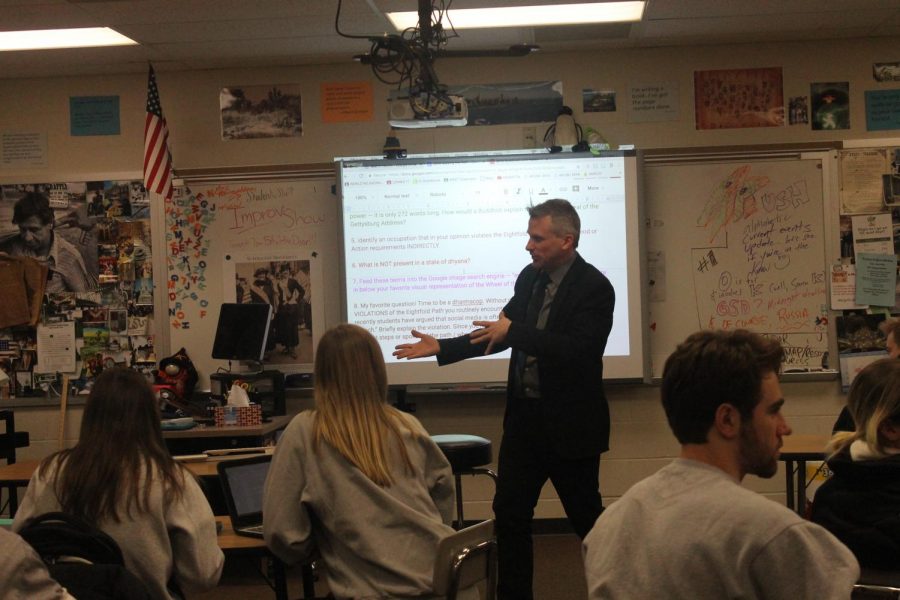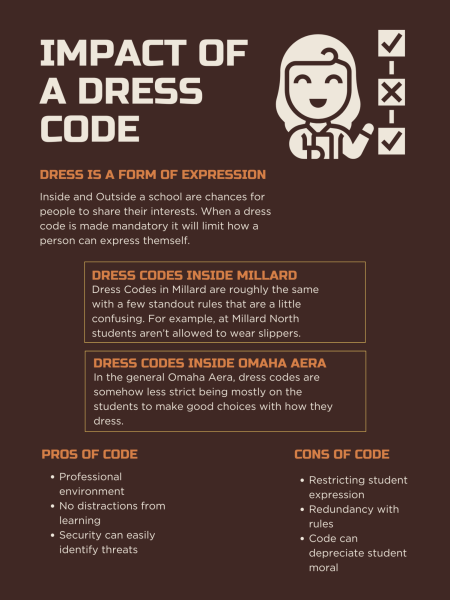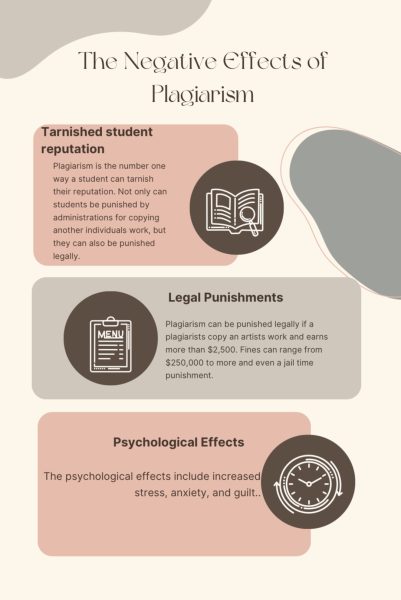World Religions Should Be A Required Class
The Power of Education Outside The Classroom
February 13, 2018
Religion brings people together through shared beliefs, culture and tradition. Vast networks of people band together to worship and immerse themselves in a sense of community. While religion can draw people closer together, it also can tear people apart.
People develop prejudices about religions due to lack of understanding and cultural differences. These prejudices can lead to hate crimes, wars and even religious extremist groups. Conflict concerning faith dates back to the very existence of mankind. Religious barriers will not dissipate; the more people try to avoid obvious barriers, the more the conflict will escalate. As a society, I believe we can fight this problem at its root: ignorance.
World Religions needs to be a required class. It aids in fighting ignorance, putting historical events into context and is interesting.
Over the course of nine weeks, “Students will analyze the five major religions of the world: Buddhism, Christianity, Hinduism, Islam, and Judaism,” according to the Millard West curriculum handbook. “Students will explore the basic tenets and history of each religion to evaluate the impact of people, events, ideas and symbols upon each other.”
As a society we think we are constantly progressing, yet parallels drawn from a century ago are frightening. World War II brought anti-semitism into the light with the Naxi extermination of nearly 6 million Jewish people. Anti-Semitism has been around since Judaism was created. People thought after the Holocaust that the issue was exposed, so it would most likely disintegrate. The truth is anti-semitism is still extremely prevalent. According to the Federal Bureau of Investigation, in 2016 Jews were subjected to 54.4 percent of religiously motivated attacks despite being 2 percent of the United States population.
On Sept. 11, 2001 the World Trade Center was attacked by members of the Islamist extremist group, Al-Qaeda. That Tuesday changed the lives of millions of people world wide and created a religious uproar. Many ignorant people started to identify all Muslims with terrorist organizations like al- Qaeda and ISIS. Lack of knowledge about Islam caused some people to think of it as a violent religion, when it is quite the opposite. Lack of religious and cultural understanding made people insecure about Muslims and their safety, leading to discrimination.
Students need to start having a conversation about religious barriers at a young age to prevent discrimination and related acts of violence. Hate crimes occur everyday because of preconceived notions stemming from inaccuracy. Educating younger generations about multiple religions helps to stop ignorance before begins, this could decrease the amount of hate crimes in the future. It is a lot harder to make stereotypes and learn prejudices about religions when you have factual and objective education.
As a student who took World Religions, it put history classes into context. In European History there is an abundance of wars fought because of religious differences. Having knowledge about common religions made it easier to understand why countries had certain conflicts. Contrasting viewpoints and beliefs sparked wars and lead to millions of lives lost. In United State History, learning about the basics of Christianity aids students in fully understanding how the United States of America came to exist. Without basic knowledge of Christianity, students would be lost in comprehending why some sects of Protestantism fled to America. History has been shaped by religion and continues to do so.
A lot of literature is inspired by religion and is implemented in curriculum. Religious parallels are drawn in William Golding’s Lord of the Flies, which is required for Honors English nine and English 10. The Scarlet Letter by Nathaniel Hawthorne is a required read for Honors English 10 and was inspired by Puritanism; the Christian sect, Puritanism, has a strong role in The Scarlet Letter and affects the entire plot. Having a brief background about multiple religions can help to broaden comprehension. It is easier to interpret certain pieces with religious meaning when you understand the religion itself.
World Religions is extremely interesting, and students get a glimpse into the vast, complex world of popular religions. Since Omaha is predominantly Christian, it was riveting and refreshing to learn about religions besides Christianity. Learning about a myriad of religions broadened my viewpoint and understanding about the world.
Religion is everywhere. Understanding the history and traditions of popular World Religions is essential in the classroom and outside of it.
Education is powerful. By implementing World Religions as a required class, we move forward in breaking religious barriers. This simple change could alter the course of history in a positive way concerning discrimination and future acts of violence.

















